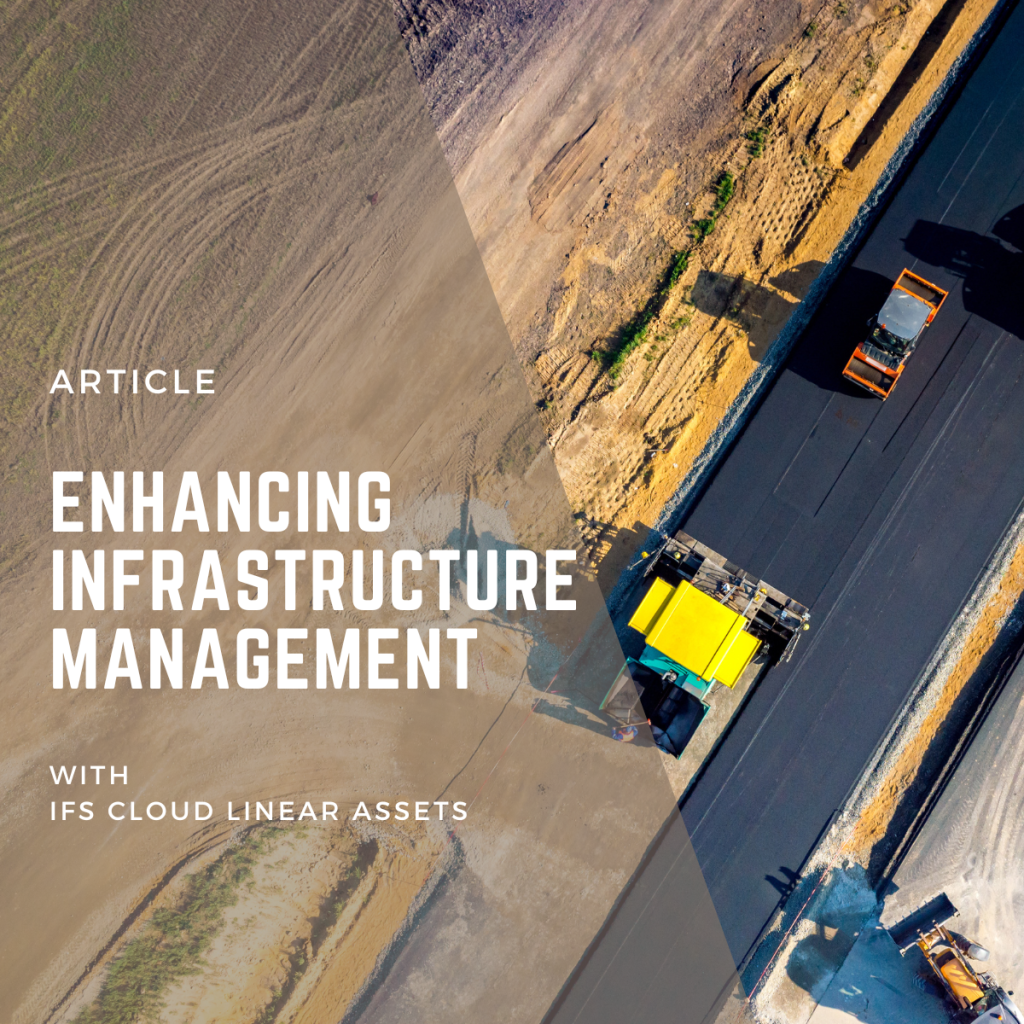In the realm of asset management, particularly for industries dealing with extensive infrastructure like roads, pipelines, or power lines, efficient management is crucial for both operational success and safety. IFS Cloud introduces robust functionality through its Linear Assets module, designed to streamline the management and maintenance of linear infrastructure. This advanced tool integrates seamlessly with IFS Field Service Management (FSM) to offer a comprehensive solution for handling long, continuous assets.

What Are Linear Assets?
Linear assets are infrastructure elements that extend over long distances and include roads, pipelines, railways, and utility lines. Unlike traditional assets, which are often discrete items with a fixed location, linear assets are characterized by their extensive reach and continuous nature.
Core Features of IFS Cloud Linear Assets
- Asset Definition and Administration: IFS Cloud Linear Assets allows for detailed definition and structured administration of assets, which is critical for precise management and operational planning.
- Geographical Representation: The module includes tools to visually represent linear assets on maps, facilitating easier management and allowing teams to pinpoint specific segments and elements of the infrastructure for maintenance or inspection.
- Maintenance Planning and Execution: With IFS Cloud Linear Assets, organizations can plan, schedule, and execute maintenance activities efficiently. The tool’s integration with FSM ensures that maintenance tasks are aligned with overall service management processes.
- Revision Management: The ability to track changes and revisions to the asset over time is another standout feature. This capability ensures that all modifications, upgrades, or expansions are documented, maintaining a comprehensive history of the asset’s evolution.
Implementing IFS Cloud Linear Assets
To effectively implement the IFS Cloud Linear Assets module, organizations need to establish a few foundational elements:
- Segments and Elements: These are parts of the asset that have defined attributes and specifications, helping to break down a lengthy asset into manageable parts.
- Connections and Sections: These features allow for the mapping of how different segments of an asset are connected and interact, further aiding in detailed management and operational planning.
- Attributes and Offsets: Attributes cover the specific characteristics of asset segments, while offsets help in defining the exact positioning of the asset in geographical space, crucial for assets that intersect or run parallel to other structures.
Practical Applications
The practical applications of the IFS Cloud Linear Assets module are vast. For example, a utility company can use the module to manage a complex network of power lines, scheduling regular maintenance and quickly addressing any faults that occur along the network. Similarly, a public works department can manage roads and bridges, planning large-scale inspections or construction projects with greater efficiency and control.
Conclusion
The IFS Cloud Linear Assets module is a powerful extension of IFS Cloud, designed to meet the unique challenges posed by managing extensive and continuous assets. By providing tools for detailed asset definition, maintenance planning, and revision management, along with robust geographical visualization capabilities, IFS empowers organizations to optimize their asset management practices, reduce downtime, and enhance service delivery across extensive infrastructures. As industries continue to evolve and the demand for efficient asset management grows, IFS Cloud Linear Assets stands out as an essential tool for any asset-intensive or infrastructure-focused organization.
ABOUT THE AUTHOR
With over 20 years of professional expertise in the IT software industry, including an impressive 19-year tenure in a managerial position at IFS Turkey, Göksel Sanbay brings a wealth of experience to the table. Throughout his career, he has successfully managed dozens of hands-on ERP, EAM, and ESM projects, leaving a trail of satisfied clients and successful implementations.
Notably, he has also excelled as a solution architect, leaving his mark on various reference IFS projects. His passion for innovation and driving efficiency has led him to embark on a new journey. In July 2022, he founded GUMA Business Solutions, a dynamic consulting company exclusively dedicated to crafting cutting-edge business software solutions, with a specialization in IFS Applications.
At GUMA, we thrive on challenges and aspire to take businesses to new heights through tailor-made software solutions that streamline operations, boost productivity, and empower growth.
